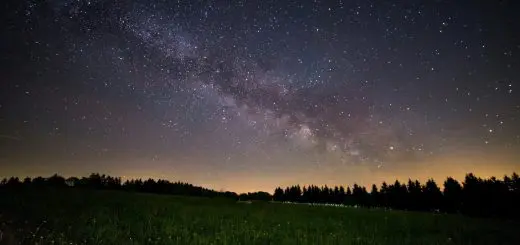The Leopard Society: Secret Societies in West Africa

Looking for more amazing products? Check out our online store and explore our collection here! Happy shopping!
Before diving in, please note: This post is for informational purposes only. If you’d like to know more about how we approach topics, feel free to check out our friendly Disclaimer Page.
Hey there, amazing readers! 
We’re committed to delivering quality posts, and your support (even just sticking around despite the ads) means everything to us. So, bear with us, and thanks for helping us keep the good vibes rolling. Now, on to the fun stuff!
TRANSLATE BUTTON AT THE END OF THE ARTICLE
Overview
Secret societies have long been a part of West African culture, with each society having its unique beliefs, rituals, and practices.
One such secret society that has left a lasting impact on the region is the Leopard Society.
This article aims to provide an in-depth understanding of the Leopard Society, delving into its history, membership structure, rituals, beliefs, and controversies.
Additionally, it will explore the role of the Leopard Society in community life, its modern adaptations, and the impact of colonialism on this secretive organization.
Introduction to Secret Societies in West Africa
West Africa is rich in cultural traditions and practices, and secret societies play a significant role in many communities.
These societies are often exclusive and shrouded in secrecy, with their origins dating back centuries.
They serve various purposes, including social control, religious practices, and the preservation of traditional beliefs and customs.
Secret societies create a sense of identity and belonging among their members, fostering a strong community bond.
The Leopard Society is one such secret society that has been prominent in West Africa.
History and Origins of the Leopard Society
The Leopard Society, also known as Ekpe or Ngbe, originated in southeastern Nigeria among the Efik people.
It emerged during the eighteenth century and spread to other regions in West Africa, including Ghana, Sierra Leone, and Liberia.
The society’s origins can be traced back to the Efik people’s belief in the supernatural powers of leopards and their desire to create a secret organization to govern their communities and maintain order.
The Leopard Society quickly gained influence and became one of the most feared and respected secret societies in the region.
Structure and Membership of the Leopard Society
The Leopard Society followed a hierarchical structure, with various levels of membership.
At the top was the Grand Leopard, who held the highest authority and served as the leader of the society.
Below the Grand Leopard were the Leopard Men, who were responsible for carrying out the society’s activities, such as law enforcement and punishment.
The Leopard Men were identified by their leopard-skin disguises, which they wore during rituals and ceremonies.
The society also included lower-ranking members, known as initiates, who aspired to become Leopard Men.
Membership in the Leopard Society was typically limited to men, although some societies allowed women to join as well.
Rituals and Practices of the Leopard Society
Rituals played a crucial role in the Leopard Society, serving both practical and spiritual purposes.
Initiations into the society involved rigorous tests of physical and mental endurance, ensuring that only the most dedicated and loyal individuals were accepted.
Once initiated, members took part in secret ceremonies, where they performed dances and chants, often wearing leopard skins and masks.
These rituals were believed to invoke the power of the leopard and establish a connection between the members and the spirit world.
The society also had its own code of conduct and laws, which were strictly enforced by the Leopard Men.
Symbolism and Beliefs of the Leopard Society
The Leopard Society was deeply rooted in traditional African beliefs and symbolism.
The leopard, as a powerful and elusive animal, symbolized strength, agility, and cunningness.
It was seen as a guardian spirit, protecting the community from evil forces.
The leopard skin worn by the Leopard Men during rituals represented their close association with the animal’s attributes.
Additionally, the society believed in the existence of ancestral spirits, who played a significant role in guiding and protecting its members.
These beliefs formed the foundation of the society’s practices and rituals.
Influence of the Leopard Society in West Africa
The Leopard Society wielded considerable influence in the communities where it operated.
It served as a form of governance, maintaining law and order through its own judicial system.
The society played a role in dispute resolution, punishing wrongdoers and preserving the peace.
It also acted as a social regulator, overseeing traditional practices and ensuring adherence to cultural norms.
The Leopard Society’s influence extended beyond its immediate members, as its reputation for enforcing justice and protecting the community instilled fear and respect among the population.
Controversies Surrounding the Leopard Society
While the Leopard Society held a prominent position in West African society, it was not without controversies.
The society’s secretive nature and its use of violence for punishment led to fear and suspicion among some individuals.
There were allegations of abuse of power and corruption within the society, with some members accused of using their authority for personal gain.
Additionally, the Leopard Society’s practices clashed with the values of Western colonial powers, leading to attempts to suppress or eliminate it during the colonial era.
The Role of the Leopard Society in Community Life
The Leopard Society played a multifaceted role in community life.
It provided a sense of belonging and identity to its members, fostering unity and camaraderie.
The society’s presence also contributed to the maintenance of social order, as individuals were deterred from engaging in criminal activities due to the fear of punishment by the Leopard Men.
Moreover, the Leopard Society served as a guardian of cultural traditions, ensuring the preservation of customs and beliefs that were central to West African communities.
Modern Adaptations and Evolution of the Leopard Society
In the face of changing times and influences, the Leopard Society has undergone adaptations and evolution.
Today, some societies have embraced a more ceremonial role, focusing on preserving cultural heritage rather than enforcing laws.
Others have transformed into cultural organizations, promoting awareness and education about West African traditions.
While the influence and significance of the Leopard Society may have diminished compared to the past, its legacy and symbolism continue to resonate in West African society.
The Impact of Colonialism on the Leopard Society
The arrival of European colonial powers in West Africa had a profound impact on the Leopard Society.
The colonial authorities viewed secret societies as a threat to their control and sought to eradicate them.
They condemned the society’s practices as barbaric and sought to impose their own legal systems and values.
The Leopard Society faced persecution and suppression during this period, which led to a decline in its influence.
However, despite efforts to eliminate the society, it managed to survive and adapt, albeit in a different form.
Conclusion: The Legacy of the Leopard Society in West Africa
The Leopard Society remains an integral part of the cultural fabric of West Africa.
Its history, rituals, and symbolism continue to resonate, even as the society has evolved over time.
While controversies and the impact of colonialism have affected its influence, the Leopard Society’s legacy remains significant.
It serves as a reminder of the rich cultural heritage of West Africa and the enduring traditions that have shaped its communities.
As the region continues to evolve, the Leopard Society serves as a link to the past, preserving the customs and beliefs that have defined West African society for centuries.

The Enlightenment Journey is a remarkable collection of writings authored by a distinguished group of experts in the fields of spirituality, new age, and esoteric knowledge.
This anthology features a diverse assembly of well-experienced authors who bring their profound insights and credible perspectives to the forefront.
Each contributor possesses a wealth of knowledge and wisdom, making them authorities in their respective domains.
Together, they offer readers a transformative journey into the realms of spiritual growth, self-discovery, and esoteric enlightenment.
The Enlightenment Journey is a testament to the collective expertise of these luminaries, providing readers with a rich tapestry of ideas and information to illuminate their spiritual path.
Our Diverse Expertise
While our primary focus is on spirituality and esotericism, we are equally passionate about exploring a wide range of other topics and niches 

To ensure we provide the most accurate and valuable insights, we collaborate with trusted experts in their respective domains 
Our blog originally focused on spirituality and metaphysics, but we’ve since expanded to cover a wide range of niches. Don’t worry—we continue to publish a lot of articles on spirituality! Frequently visit our blog to explore our diverse content and stay tuned for more insightful reads.
Hey there, amazing reader! 
Check out our store here and take a peek at some of our featured products below! Thanks for being awesome!












